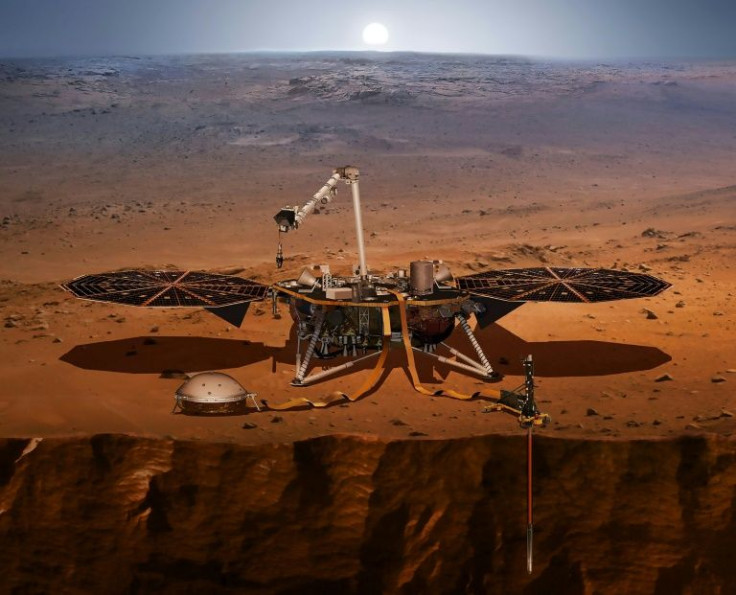NASA's InSight Lander To Gather More Scientific Data Before Retiring
KEY POINTS
- The team will keep InSight's seismometers on for a few more weeks
- This will help gather more data, though the lander will get discharged sooner
- The lander has been providing valuable data since it landed on Mars in 2018
NASA's InSight Mars lander is on its way to retirement, but it's not ready to stop providing scientific data just yet. The team behind it has made a slight change to the lander's retirement plans.
The InSight (Interior Exploration using Seismic Investigations, Geodesy and Heat Transport) lander has been providing valuable data since it landed on Mars in 2018, but it's now on its way to retirement, with its power-producing solar panels already covered in dust. In fact, the lander already took its final selfie back in April.
However, it seems that InSight will provide more data for a little while longer. Initially, it was projected that InSight would shut down its final instrument by the end of June, ending its operations in the summer, and finally become inoperable by December, NASA noted in a feature.
Now, the team is planning to program it so that the final instrument, the seismometer, would continue working until August or even September. Although the plan would cause InSight to run out of power sooner, it adds a few more weeks to its scientific operations, during which it may detect even more marsquakes.
"The goal is to get scientific data all the way to the point where InSight can't operate at all, rather than conserve energy and operate the lander with no science benefit," said Chuck Scott, InSight project manager at NASA's Jet Propulsion Laboratory.
InSight has detected more than 1,300 marsquakes during its mission. This includes the magnitude 5 "monster quake" it detected in May, which was the "largest-ever observed on another planet."
The plan is to shut off the Mars lander's "fault protection system" to extend its mission. This is the system that triggers "safe mode," which shuts down all functions except for the essential ones in threatening situations, NASA explained.
"With mission goals met, my retirement is on the horizon. But as my power declines, my focus increases: I'll keep my seismometer going, recording marsquakes for as long as I have energy. Every bit of science counts," a tweet from NASA InSight Twitter account read.
With mission goals met, my retirement is on the horizon. But as my power declines, my focus increases: I’ll keep my seismometer going, recording marsquakes for as long as I have energy. Every bit of science counts.
— NASA InSight (@NASAInSight) June 21, 2022
Read more: https://t.co/37mcHsglWC pic.twitter.com/hwvFDySnlP
"InSight hasn't finished teaching us about Mars yet," added Lori Glaze, the director of NASA's Planetary Science Division. "We're going to get every last bit of science we can before the lander concludes operations."

© Copyright IBTimes 2024. All rights reserved.





















